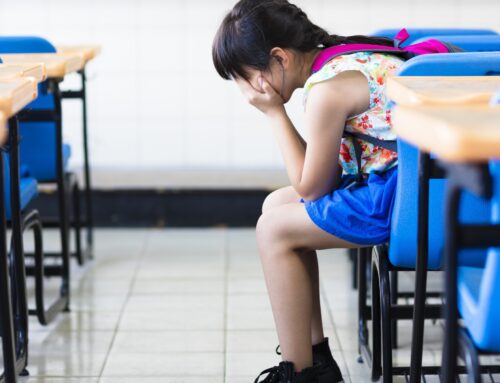
Yes, you read that right.
I’m asking you to let your kids be just a little bit messy.
I get it. Your life is busy enough without extra chaos, confusion, or goldfish cracker crumbs to sweep up. Anyone who’s been a parent long knows how exhausting and frustrating it can be to clean up a seemingly endless cycle of messes.
Why would you let your kids make a mess…on purpose?
Believe it or not, if you look at messes the right way, they can be a doorway to curiosity and productivity.
That pancake batter all over the kitchen table means your child is learning about fractions and cultivating independence. (Sure, you’ll have to teach them what it means to take responsibility for cleanup…but that’s all part of the grand adventure of learning!)
Messes and mistakes aren’t all bad.
Don’t believe me yet? Here’s why your child just might need a little more space for messy learning…
Thomas Edison and disappointment
Thomas Edison is credited with saying, “Results? Why, man, I have gotten lots of results! If I find 10,000 ways something won’t work, I haven’t failed. I am not discouraged because every wrong attempt discarded is often a step forward….”
Besides being a great scientist and inventor, Thomas Edison was also a stellar example of ingenuity and hard work.
But brilliance doesn’t magically spring out of a vacuum. He embraced failure in his experiments as a necessary path to discovery. According to Edison, messes are part of the grand adventure of finding success.
When it comes to parenting, the same approach works wonders. Most children have an innate desire to please. As Adventures in Wisdom points out, “Children… don’t want to disappoint the grownups in their lives – especially those they look up to such as parents, teachers, and coaches. Need for approval is a strong driver for young children.”
While children are curious and adventurous, they are often deeply afraid of letting down those they love. This often leads them to fear failure.
Whether at work or play, children should be encouraged to try new things (in responsible ways, of course!), even if the task gets a little messy or confusing as they work to find solutions. Parents.com reminds us that “…disappointments are actually beneficial for kids. Learning to deal with setbacks helps them develop key characteristics they’ll need to succeed, such as coping skills, emotional resilience, creative thinking, and the ability to collaborate.”
Failure defined
What is failure, anyway? And why do we hate it so much?
The Merriam-Webster dictionary defines failure as “omission of occurrence or performance” and “lack of success.”
“Omission of occurrence or performance” suggests that the person in question did not even try. This is actual failure at its worst. If you never attempt anything new, you will never achieve anything. All progress begins with something no one has done before.
Since this article is all about giving your kids space to try new things, let’s focus on the second definition:
A tale of two perspectives on failure
Lack of success means your kid made an attempt that didn’t work out. There’s a negative way to look at this “failure,” and there’s a positive way…
The negative perspective
“Oh no! Why did you do that? Look at what a big mess you made. That was never going to work.”
This approach to failure is a killjoy.
As a parent, your child picks up on the story you tell with your attitudes. If your response to failure is criticism and negativity, then they will be afraid to fail and afraid to tell you about it if they do make a mistake.
Discouragement, fear of future failure, and a lower view of self-worth are all potential side-effects of a parenting strategy focused on avoiding mistakes at all costs.
The positive perspective
“Oh boy! That was a surprising result! I’m really proud of you for coming up with that idea—but now we know that way doesn’t work. Sometimes things don’t happen like we expect. What can we try next?
Thomas Edison certainly embraced this positive perspective on “lack of success.” Something was attempted, and that’s an exciting thing—even if the outcome was different than expected. As hard as it is to wait and watch your child figure out things for themself, stepping back and watching with an encouraging smile is a huge gift to their development.
A healthy view of failure
Fear prevents success. If you show your child that you’re not afraid of them messing up, they won’t be devastated when life throws them a curveball.
“You tried, and you learned something.”
This phrase sums up a healthy view of failure. EducationWeek explains, “When looked at correctly, failure can teach us where we went wrong in the first place, and how we can learn to pick ourselves up again in a pursuit to succeed. There are valuable lessons in failing. Too often, people keep trying the same solution and keep getting the same result. Failure can teach us that it is not that we are bad at something, just that we have to try a different method to find success.”
To grow strong and creative children, parents have to start with the correct attitude about messing up. Mindset is essential.
A proper mindset for parents
“…letting children learn from their mistakes helps build resilience and is essential to raising a confident, capable, happy, and successful adult,” Bright Horizons tells us. “When children are given the opportunity to struggle and sometimes fail, you allow them to develop important social and emotional skills.”
Explaining the importance of allowing our children to make and embrace mistakes, the article continues, “Providing opportunities to develop skills of resilience and coping within a safe, loving, and supportive environment are the best way to prepare children for life’s challenges.”
The bottom line? Parents should allow their children to make mistakes both at home and at school.
Of course, this doesn’t mean teaching kids not to care about their work, encouraging laziness, or ignoring the importance of wisdom when taking risks! A mom or dad can instill pride in a job well done while simultaneously teaching their kids that it’s okay to explore, experiment, and not know how to do something on the first try.
To achieve this, parents should always praise rigorous effort regardless of the outcome, while guiding their kids toward greater success next time and—when safety allows—letting natural consequences be the loudest teacher.
The experts weigh in on failure…
- The Huffington Post suggests, “It’s natural for parents to want to protect their children from disappointment, but doing so can ultimately lower their self-esteem and set them up for more difficulty in the future.”
- NPR explains a recent study that examined how parents’ mindsets about failure, success, and perceived intelligence affect their children: “The way children perceived ‘being smart’ was not related to how their parents perceived intelligence, but it was related to how their parents reacted toward failure….The challenge for parents is to support children without setting them up for failure.”
- Psychology Today says, “Failure is an inevitable-and essential-part of life. Failure can bolster the motivation to overcome the obstacles that caused the failure. It shows children what they did wrong so they can correct the problem in the future. Failure connects children’s actions with consequences which helps them gain ownership of their efforts. Failure teaches important life skills, such as commitment, patience, determination, decision making, and problem solving. It helps children respond positively to the frustration and disappointment that they will often experience as they pursue their goals. Failure teaches children humility and appreciation for the opportunities that they’re given.”
It can be challenging for many parents to know how to help their children view mistakes positively. Dr. Marilyn Price-Mitchell of Roots of Action gives these suggestions:
- “Acknowledge that you don’t expect them to be perfect.
- Let them know your love is unconditional, regardless of their mistakes or lapses in judgment.
- Don’t rescue kids from their mistakes. Instead, focus on the solution.
- Provide examples of your own mistakes, the consequences, and how you learned from them.
- Encourage children to take responsibility for their mistakes and not blame others.
- Avoid pointing out your child’s past mistakes. Instead, focus on the one at hand.
- Praise children for their ability to admit their mistakes.
- Praise children for their efforts and courage to overcome setbacks.
- Mentor your child on how to apologize when their mistakes have hurt others.
- Help kids look at the good side of getting things wrong!”
Quoted from Roots of Action
Embrace the mess
Messing up is not a negative thing when we learn from it. Instead, mistakes and messes help us to grow.
FamilyFocusBlog sums up this concept: “Mistakes and failures are as important as successes are. Failure builds character and makes them [your child] stronger. This will also help them develop grit. Grit is the combination of perseverance and consistent work ethic. Your child will eventually learn not to fear failure and to persevere with challenges as they learn to have a growth mindset. Accepting the concept of growth mindset will help your child be in pursuit of the best version of themselves.”
As parents, we want the very best for our children. We want to set them up for success and prepare them for a well-lived life.
“Success” is not necessarily the opposite of “failure.” Often, the two go hand-in-hand. Failure, mistakes, and making a mess of things can often lead to the most valuable lessons.
So…keep the broom and mop handy, but take a step back.
Your kid will thank you one day.





[…] love to explore, feel, experience, and experiment. These activities are the essence of what we call play. It’s how they connect to their world, […]
[…] love to explore, feel, experience, and experiment. These activities are the essence of what we call play. It’s how they connect to their world, […]